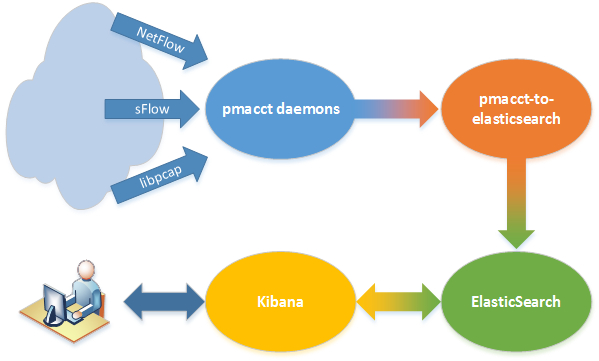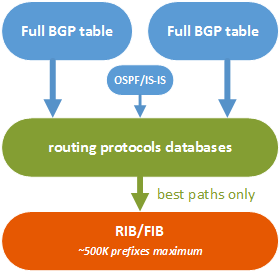Lately, in the IETF Inter-Domain Routing (idr) area, various efforts are going on to push a (IMHO) winning idea to solve a 32-bits-wide problem: standard BGP communities are no longer enough to describe routing policies which involve 4-byte ASNs. For example, how can I tell my transit provider to not announce my prefixes to AS65551 (a 4-byte ASN) using a schema like 65500:nnn do not announce to peer nnn? Well, draft-heitz-idr-large-community proposes a simple and quick solution to this problem: Large BGP Communities (http://largebgpcommunities.net/ for more info).
Many vendors seem to like the idea, some of them have already published a working implementation, others plan to work on it in the (hopefully) near future.
In order to test current implementations and see them with my own eyes I wanted to build a Large BGP community playground, just a way to have the new code up & running quickly. Hopefully I will keep it up to date as soon as more vendors release their code.
GoBGP:
# gobgp neighbor 192.0.2.2 adj-in
Network Next Hop AS_PATH Age Attrs
203.0.113.1/32 192.0.2.2 65536 00:14:49 [{Origin: i} {LargeCommunity: [ 65536:1:2]}]
ExaBGP:
Thu, 15 Sep 2016 14:15:18 5 routes peer 192.0.2.3 ASN 65537 << UPDATE (1) ( 4) attributes origin incomplete as-path [ 65537 ] large-community 65537:3:4
It’s on GitHub: comments or suggestions would be greatly appreciated.

